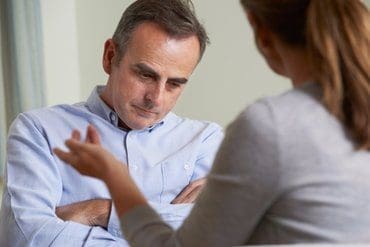Depression Treatment
Depression Treatment
Treatment for depression is likely to take two approaches – presciption drugs and counselling.
I would expect you to see your GP and it is likely that they will prescribe anti-depressants for you. Anti-depressants do not always agree with us, and it may be necessary for you to change the presciption drug. Your GP will work with you on this.
This is one part, but drugs alone are unlikely to solve the root cause of your problem. You need Depression Therapy often called Depression Counselling.
Our aim is to return you to a normal life. Depression treatment is a process, we would aim to reduce the severity of your depression, though it may still occur, but at a level where you are able to recognise it and cope with it.
#depressioncounselling, #depressioncounseling, #depressionhelp
Depression symptoms
Signs of depression include:
- Feeling sad and miserable
- Continually being tired
- Not getting enjoyment from life
- Withdrawing from family and friends
- Feeling useless
- Being bored
- Restlessness
- Lack of concentration
- More alcohol than usual
- Turning to drugs
- Poor sleep
- Being irritable
- Pessimism
- Changes in your appetite

Types of Depression
There are a number of recognisable types of depression beyond the general form of feeling down.
Postnatal depression
Quite common in the first two months after childbirth.
Depressive disorder
The common term for depression. Feeling low, loss of interest in your normal activities.
Bipolar
If you have this you will be experiencing extreme high’s and low’s. You really need your doctor to refer you to a psychologist. I do not cover Bipolar
Grief
Also called Loss. This can be loss of a loved one (see Bereavement), loss of a job (Redundancy), separation and more.
Seasonal Affective Disorder (SAD)
This is quite common, as the winter draws in and it gets dark earlier you may become more miserable. Talking through your problems can help. Light boxes can also help you.
What is Depression
Are you feeling depressed? Depression is a state of mind in that everything appears in a negative light. It is more than a mental issue, it can be caused by an underactive thyroid or prescription drugs or many other reasons. Depression Counselling is recommended by medical professionals to help you overcome the effects.
We can all feel miserable for a few days, but when this happens regularly and becomes weeks and months then it is depression.
Depression Help
We are all impacted by depression at some time or another. Depression can be of short duration or last a long time.
Not only does it bring us down it can be a huge burden on those close to us particularly our partner or our family. They are likely to spot the symptoms of depression before we realise what is happening to us.
Depression could impact our daily work. Signs of depression will be noticed by our work colleagues and our friends who will see us as negative and may gradually avoid us. When depressed we will do less socialising, but we cannot avoid work. Most of us cannot afford to lose our job.
Depression Therapy
If your are feeling depressed the way to help overcome it is through Counselling. Here we talk about your symptoms of depression, why or when it starts and what happens to you when you are depressed. Helping you understand the impact it has on others.
Depression counselling will take the form of sessions where we talk through the problem. I will give you homework, things to think about over the next week. The process is two of us working together to help you.
Causes of Depression
There are many causes. Some of the causes are:
Health related
Illnesses such as diabetes, under active thyroid, events that change your life-style (even temporarily) such as broken leg, heart problems.
Social and Work
A change of your life-style such as moving and being cut-off from friends and family, moving to a new job and not enjoying it.
Life events
Probably the most common. Events such as bereavement, divorce, separation, redundancy.
Self worth
If you suffer from low self-esteem or low self-confidence, it is easy to slip into depression.
Childhood
Traumas of various types, being bullied, abuse, unstable family, drug use by parents, and more.